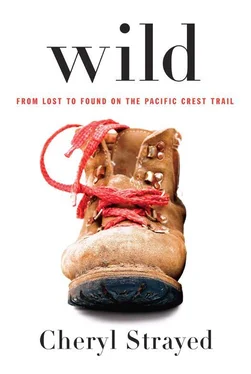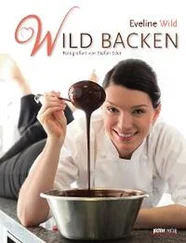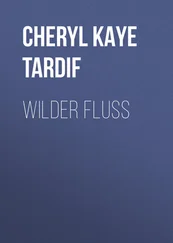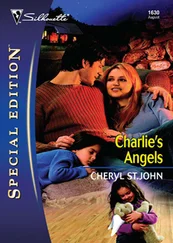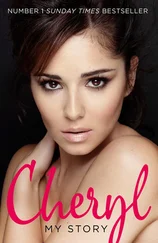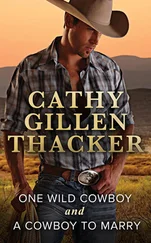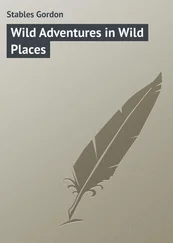Cheryl Strayed - Wild
Здесь есть возможность читать онлайн «Cheryl Strayed - Wild» весь текст электронной книги совершенно бесплатно (целиком полную версию без сокращений). В некоторых случаях можно слушать аудио, скачать через торрент в формате fb2 и присутствует краткое содержание. Год выпуска: 2012, ISBN: 2012, Жанр: Современная проза, на английском языке. Описание произведения, (предисловие) а так же отзывы посетителей доступны на портале библиотеки ЛибКат.
- Название:Wild
- Автор:
- Жанр:
- Год:2012
- ISBN:978-0-307-95765-8
- Рейтинг книги:4 / 5. Голосов: 1
-
Избранное:Добавить в избранное
- Отзывы:
-
Ваша оценка:
- 80
- 1
- 2
- 3
- 4
- 5
Wild: краткое содержание, описание и аннотация
Предлагаем к чтению аннотацию, описание, краткое содержание или предисловие (зависит от того, что написал сам автор книги «Wild»). Если вы не нашли необходимую информацию о книге — напишите в комментариях, мы постараемся отыскать её.
Wild — читать онлайн бесплатно полную книгу (весь текст) целиком
Ниже представлен текст книги, разбитый по страницам. Система сохранения места последней прочитанной страницы, позволяет с удобством читать онлайн бесплатно книгу «Wild», без необходимости каждый раз заново искать на чём Вы остановились. Поставьте закладку, и сможете в любой момент перейти на страницу, на которой закончили чтение.
Интервал:
Закладка:
Fuck her , I thought, so mad that I stopped walking.
And then I wailed. No tears came, just a series of loud brays that coursed through my body so hard I couldn’t stand up. I had to bend over, keening, while bracing my hands on my knees, my pack so heavy on top of me, my ski pole clanging out behind me in the dirt, the whole stupid life I’d had coming out my throat.
It was wrong. It was so relentlessly awful that my mother had been taken from me. I couldn’t even hate her properly. I didn’t get to grow up and pull away from her and bitch about her with my friends and confront her about the things I wished she’d done differently and then get older and understand that she had done the best she could and realize that what she had done was pretty damn good and take her fully back into my arms again. Her death had obliterated that. It had obliterated me. It had cut me short at the very height of my youthful arrogance. It had forced me to instantly grow up and forgive her every motherly fault at the same time that it kept me forever a child, my life both ended and begun in that premature place where we’d left off. She was my mother, but I was motherless. I was trapped by her but utterly alone. She would always be the empty bowl that no one could fill. I’d have to fill it myself again and again and again.
Fuck her , I chanted as I marched on over the next few miles, my pace quickened by my rage, but soon I slowed and stopped to sit on a boulder. A gathering of low flowers grew at my feet, their barely pink petals edging the rocks. Crocus , I thought, the name coming into my mind because my mother had given it to me. These same flowers grew in the dirt where I’d spread her ashes. I reached out and touched the petals of one, feeling my anger drain out of my body.
By the time I rose and started walking again, I didn’t begrudge my mother a thing. The truth was, in spite of all that, she’d been a spectacular mom. I knew it as I was growing up. I knew it in the days that she was dying. I knew it now. And I knew that was something. That it was a lot. I had plenty of friends who had moms who — no matter how long they lived — would never give them the all-encompassing love that my mother had given me. My mother considered that love her greatest achievement. It was what she banked on when she understood that she really was going to die and die soon, the thing that made it just barely okay for her to leave me and Karen and Leif behind.
“I’ve given you everything,” she insisted again and again in her last days.
“Yes,” I agreed. She had, it was true. She did. She did. She did. She’d come at us with maximum maternal velocity. She hadn’t held back a thing, not a single lick of her love.
“I’ll always be with you, no matter what,” she said.
“Yes,” I replied, rubbing her soft arm.
When she’d become sick enough that we knew she was really going to die, when we were in the homestretch to hell, when we were well past thinking any amount of wheatgrass juice would save her, I’d asked her what she wanted done with her body — cremated or buried — though she only looked at me as if I were speaking Dutch.
“I want everything that can be donated to be donated,” she said after a while. “My organs, I mean. Let them have every part they can use.”
“Okay,” I said. It was the oddest thing to contemplate, to know that we weren’t making impossibly far-off plans; to imagine parts of my mother living on in someone else’s body. “But then what?” I pressed on, practically panting with pain. I had to know. It would fall on me. “What would you like to do with … what’s … left over. Do you want to be buried or cremated?”
“I don’t care,” she said.
“Of course you care,” I replied.
“I really don’t care. Do what you think is best. Do whatever is cheapest.”
“No,” I insisted. “You have to tell me. I want to know what you want done.” The idea that I would be the one to decide filled me with panic.
“Oh, Cheryl,” she said, exhausted by me, our eyes meeting in a grief-stricken détente. For every time I wanted to throttle her because she was too optimistic, she wanted to throttle me because I would never ever relent.
“Burn me,” she said finally. “Turn me to ash.”

And so we did, though the ashes of her body were not what I’d expected. They weren’t like ashes from a wood fire, silky and fine as sand. They were like pale pebbles mixed with a gritty gray gravel. Some chunks were so large I could see clearly that they’d once been bones. The box that the man at the funeral home handed to me was oddly addressed to my mom. I brought it home and set it in the cupboard beneath the curio cabinet, where she kept her nicest things. It was June. It sat there until August 18, as did the tombstone we’d had made for her, which had arrived the same week as the ashes. It sat in the living room, off to the side, a disturbing sight to visitors probably, but it was a comfort to me. The stone was slate gray, the writing etched in white. It said her name and the dates of her birth and death and the sentence she’d spoken to us again and again as she got sicker and died: I’m with you always .
She wanted us to remember that, and I did. It felt like she was with me always, metaphorically at least. And in a way it was literal too. When we’d finally laid down that tombstone and spread her ashes into the dirt, I hadn’t spread them all. I’d kept a few of the largest chunks in my hand. I’d stood for a long while, not ready to release them to the earth. I didn’t release them. I never ever would.
I put her burnt bones into my mouth and swallowed them whole.
By the night of my mother’s fiftieth birthday, I loved her again, though I still couldn’t bear to let the Judy Collins songs come into my head. It was cold, but not as cold as the night before. I sat bundled in my tent wearing my gloves, reading the first pages of my new book— The Best American Essays 1991 . I usually waited until morning to burn whatever pages I’d read the night before, but on this night, when I was done reading, I crawled out of my tent and made a fire of the pages I’d read. As I watched them ignite, I said my mother’s name out loud as if it were a ceremony for her. Her name was Barbara, but she’d gone by Bobbi, so that was the name I spoke. Saying Bobbi instead of Mom felt like a revelation, like it was the first time that I truly understood that she was my mother, but also more. When she’d died, I’d lost that too — the Bobbi she’d been, the woman who was separate from who she was to me. She seemed to come at me now, the full perfect and imperfect force of her humanity, as if her life was an intricately painted mural and I could finally see the whole thing. Who she’d been to me and who she hadn’t. How it was she belonged to me profoundly, and also how she didn’t.
Bobbi hadn’t been granted her last wish, that her organs be used to help others, or at least not to the extent that she had hoped. When she died, she was ravaged with cancer and morphine, her forty-five-year-old body a toxic thing. In the end, they could use only her corneas. I knew that part of the eye was nothing but a transparent membrane, but when I thought of what my mother had given, I didn’t think of it that way. I thought of her astounding blue, blue eyes living on in someone else’s face. A few months after my mom died, we’d received a thank-you letter from the foundation that facilitated the donation. Because of her generosity someone could see, the letter said. I was mad with desire to meet the person, to gaze into his or her eyes. He or she wouldn’t have to say a word. All I wanted was for whoever it was to look at me. I called the number on the letter to inquire, but was quickly brushed aside. Confidentiality was of the utmost importance, I was told. There were the recipient’s rights.
Читать дальшеИнтервал:
Закладка:
Похожие книги на «Wild»
Представляем Вашему вниманию похожие книги на «Wild» списком для выбора. Мы отобрали схожую по названию и смыслу литературу в надежде предоставить читателям больше вариантов отыскать новые, интересные, ещё непрочитанные произведения.
Обсуждение, отзывы о книге «Wild» и просто собственные мнения читателей. Оставьте ваши комментарии, напишите, что Вы думаете о произведении, его смысле или главных героях. Укажите что конкретно понравилось, а что нет, и почему Вы так считаете.
